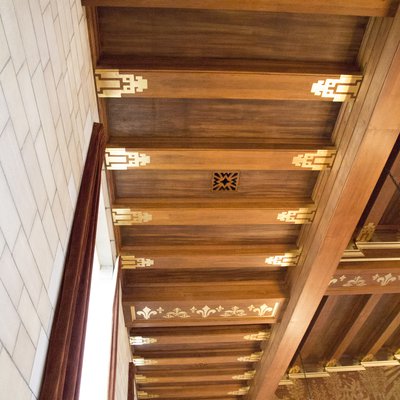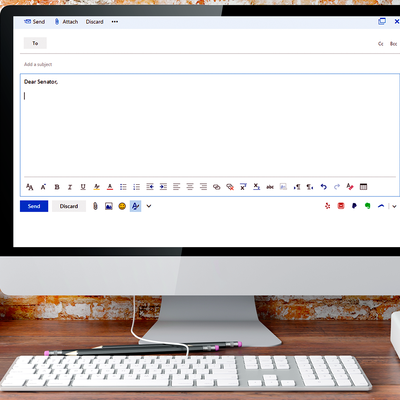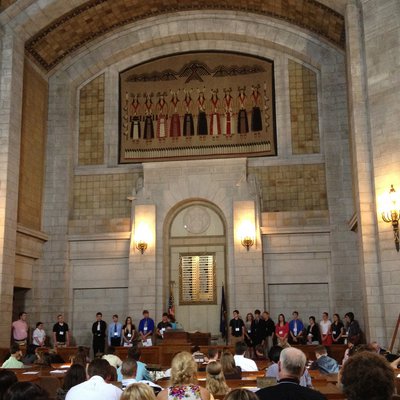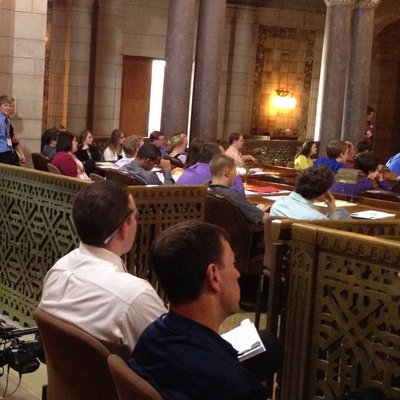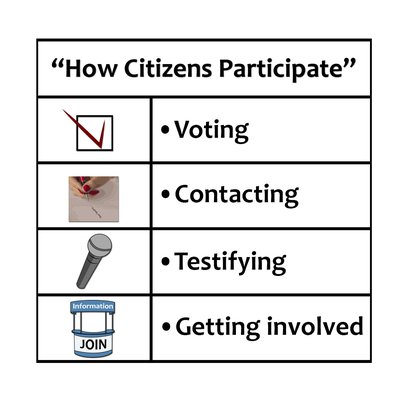CH 11
Unicameral
The Role of the Legislature
Lesson 3 - Citizen Participation
Many people came to Nebraska hoping for a better life and willing to work for it. That’s what artist Hildreth Meiere wanted to say with all the images of different people around this room who made up the history of Nebraska.
That's the spirit that fills this chamber. The work is done in part by the senators who make up the Unicameral, and in part by the citizens who elect them.
Hildreth Meiere designed the artwork for the ceiling. She gave her designs to the leafers who made the patterns and created the images in gold leaf on the walnut beams. It’s a multistage process. Line drawings have tiny holes punched along the outline. These new patterns with holes are held up to the surface and a bag of powder is tapped over the holes to make marks on the walnut beams. The holes are connected with lines. Then sizing (a sticky stuff) fills in the holes so the gold leaf will stay in place. The resulting pattern captures the light of the room and the eye of the observer.
Even the marble columns in the Norris Chamber show diversity.
Nebraska citizens do their work in the Unicameral in several ways.
Even if a citizen's chosen candidate does not win, the citizen can still work with the elected representative.
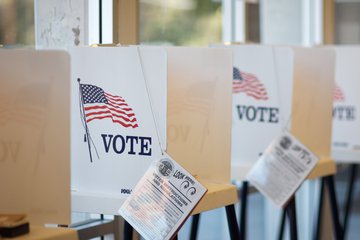
Citizens can help
make sure they're represented
by taking part in the elections
for state senators. Citizens must be 18 years of age to vote in Nebraska.
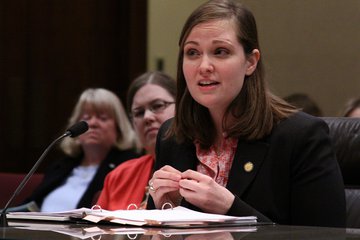
A citizen doesn't have to be a registered voter to meet with a senator, but it helps to have an appointment. A citizen can arrange a face-to-face meeting with a senator by contacting the senator's office and working with the senator's staff to find a spot in the schedule.

A citizen can phone a senator and express opinions directly to the senator or to a staff member. A citizen can visit a senator’s web page, which contains the senator’s biography, district map, and photos, along with information about bills the senator has introduced. It also has contact information.
eMail is a very popular way to contact senators-- which means senators get plenty of it. It helps to add a name and contact information at the bottom of the message, so a senator can respond by email or regular mail.
The committees of the Legislature hold hearings for each bill they're considering. Citizens are welcome to testify at these hearings to tell senators why they think a bill should or shouldn't be passed.
The hearing will be included in the Legislature's weekly schedule. At the hearing, the senator sponsoring the bill introduces it, and then the committee chair asks those in favor of the bill to testify. Then the chair asks those who oppose the bill to testify. Finally, those who are neutralNeither for nor against. are invited to testify.
Source:
The story of the boy’s select choir was told to me by Brad Binning, who actually sang in the choir that day in 1967. He said the composer was there in person to hear it. The choir was formed especially to perform the song. He remembers the opera-type singer who performed before they did. The boys didn’t find out until later their song won. Here’s the general story of passing the legislation for state song:
Sometimes, people with a common interest or concern get together in interest groupsMembers of an interest group work together for a special cause.. They might start a letter-writing campaign, carry out special projects to raise money, use social media or create a web page send information to the media, or even hire a lobbyistA person who contacts politicians on behalf of an interest group (sometimes hired by the group)..
These are rights—and responsibilities—all Nebraskans share.
Do you remember all the ways citizens can participate?
SOMETHING TO THINK ABOUT . . .
If you were a senator, what law would you want to change?Why?
